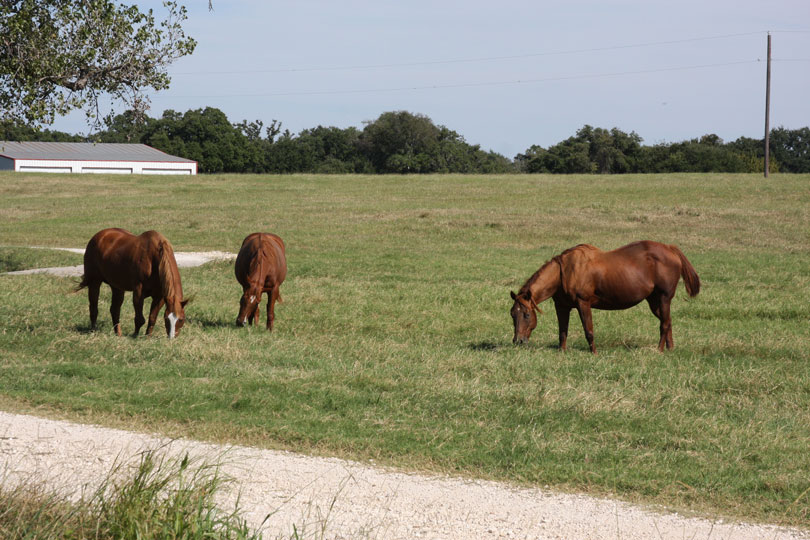The first cases of vesicular stomatitis virus (VSV) this year were confirmed in horses on two Starr County premises on April 23.
The National Veterinary Services Laboratories (NVSL) confirmed the virus as the New Jersey serotype.
The horses were tested after the individual owners observed lesions on the horses’ muzzles and contacted their veterinary practitioners. The animals are being monitored, and the premises will remain under state quarantine until 14 days from the onset of lesions in the last affected animal on the premises.
“VSV is spread by direct contact with infected animals or spread by insect vectors like black flies, sand flies, and biting midges,” Dr. Andy Schwartz, Texas Animal Health Commission (TAHC) executive director, said. “The epidemiological investigations on the VSV-positive premises indicate that VSV-infected insects are likely the source of infection on these premises. Biosecurity measures and vector mitigation have been instituted to reduce the spread of the virus.”
Vesicular stomatitis is a viral disease that primarily affects horses and cattle and occasionally swine, sheep, goats, llamas and alpacas. VSV can cause blisters and sores in the mouth and on the tongue, muzzle, teats or hooves of susceptible animals.
Additional signs of infection include fever, drooling or frothing at the mouth, reluctance to eat, lameness or laminitis if lesions develop around the coronary band. Lesions usually will heal in two or three weeks, and most animals recover with supportive care by a veterinarian.
Prevention
Even with the best defensive measures, VSV could infect a herd, but these tips may help protect livestock:
- Control biting flies (fly spray, fly traps, maintaining clean pens, etc.).
- Keep equine animals stalled or under a roof to reduce exposure to flies.
- Feed and water stock from their individual buckets.
- Don’t visit a ranch that’s under quarantine for VSV. Wait until the animals have healed.
- Restrict nose-to-nose contact between horses from other premises.
- Clean and disinfect tack and equipment between uses.
If you suspect infection
- Call your private veterinarian immediately.
- Separate affected horse(s) from all healthy horses on the property.
- Handle all healthy animals before sick animals. After handling sick animals make sure to wash and disinfect your hands and boots, if possible, change and wash your clothes, as well.
Some states and other countries may restrict movement of, or impose additional requirements for, equine or other susceptible animals from states having known cases of VSV.
Before moving livestock, contact the state of destination for their requirements. Find the list of animal health departments here.
For international export information, contact the USDA Veterinary Services Austin office at 301.851.3300, option 2.
The United States 2020 VSV outbreak began on April 13, 2020, when NVSL confirmed the first VSV-positive premises in New Mexico. Arizona and Texas subsequently broke with VSV cases, which were confirmed by NVSL on April 22 (Cochise County, Arizona) and April 23 (Starr County, Texas).
All cases will be reported to the Equine Disease Communication Center.
For VSV history and past TAHC updates, click here. To view the USDA 2020 VSV situation reports click here.
Veterinary Guidance
If you suspect a client’s animal is infected with VSV, contact your TAHC Region Office for procedures, required paperwork, and important sample submission information.
For more information about VSV and preventative measures, visit the links below:

